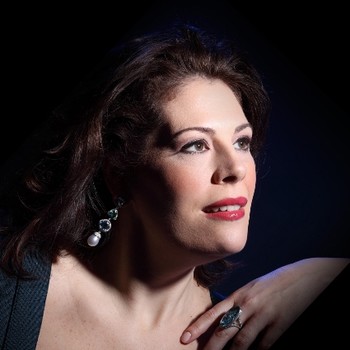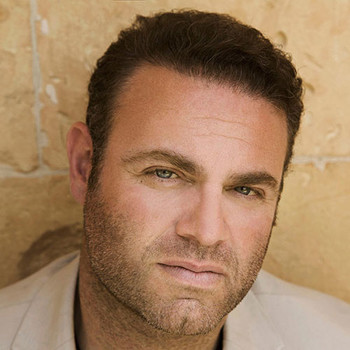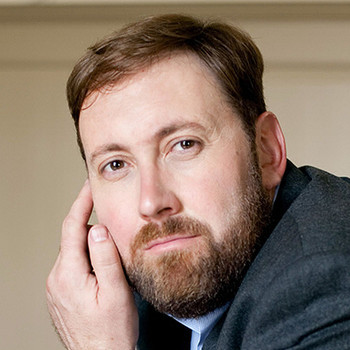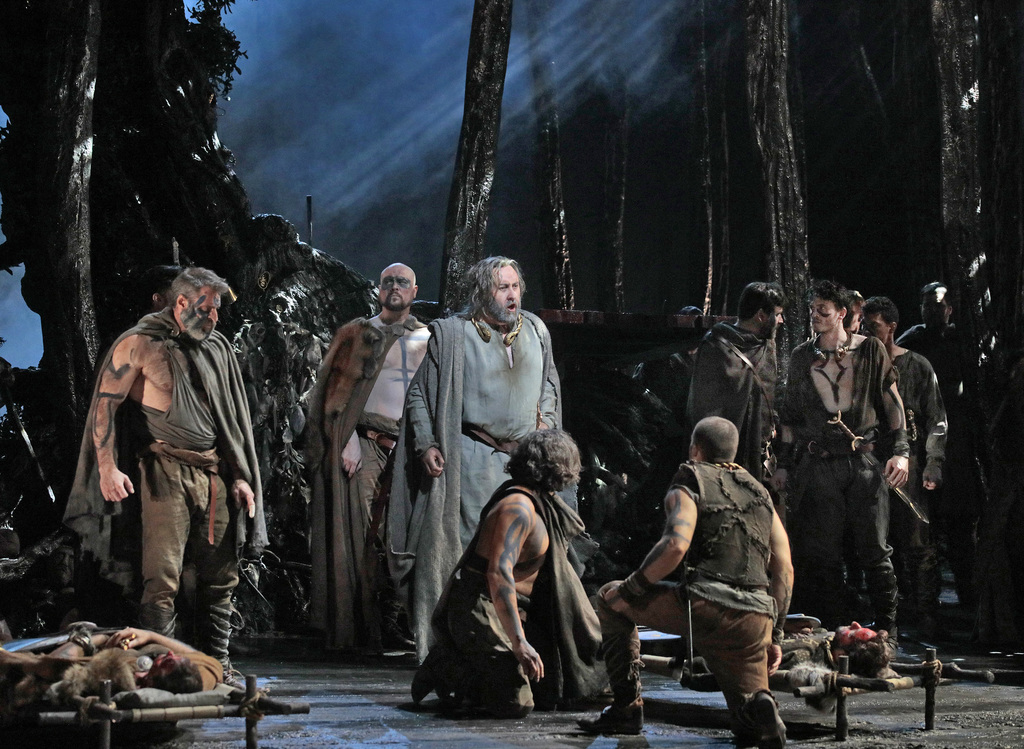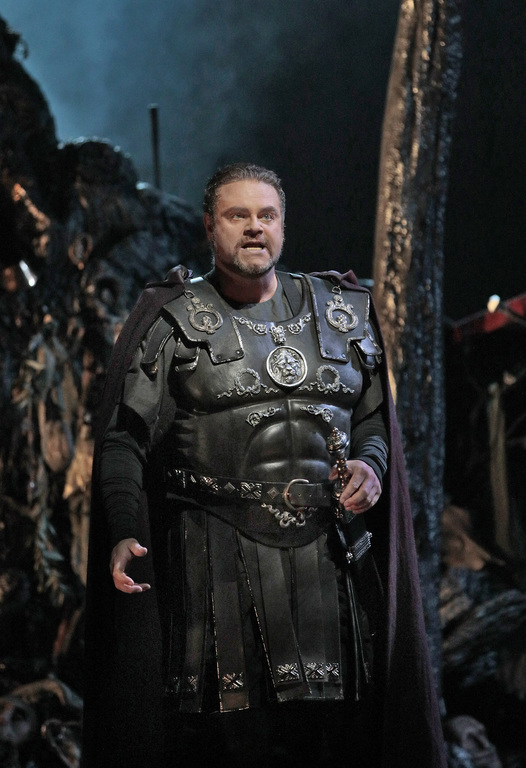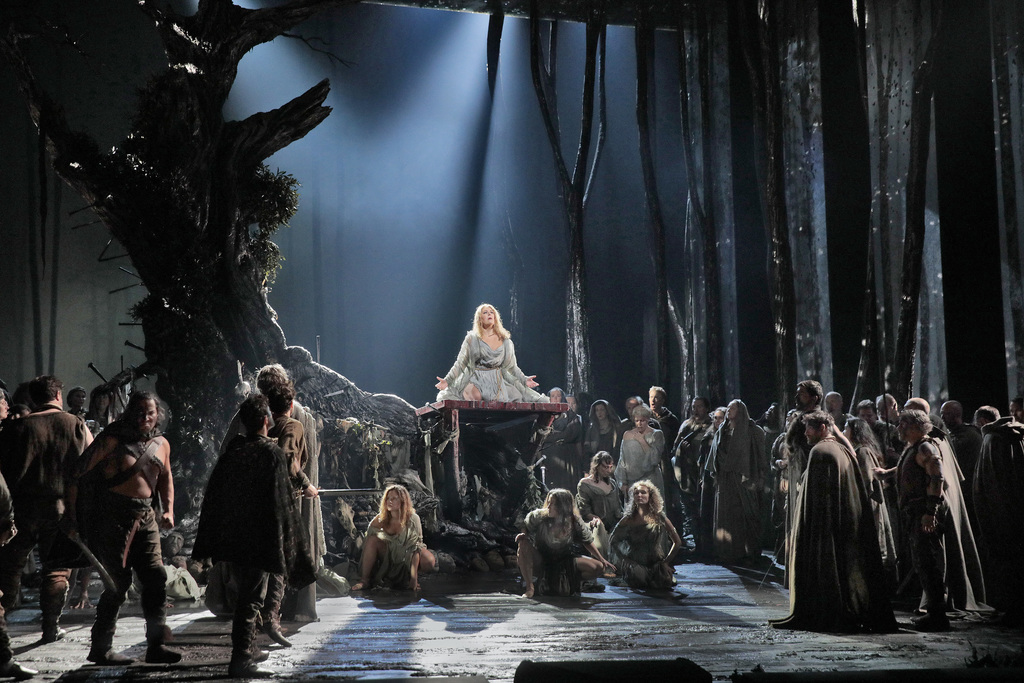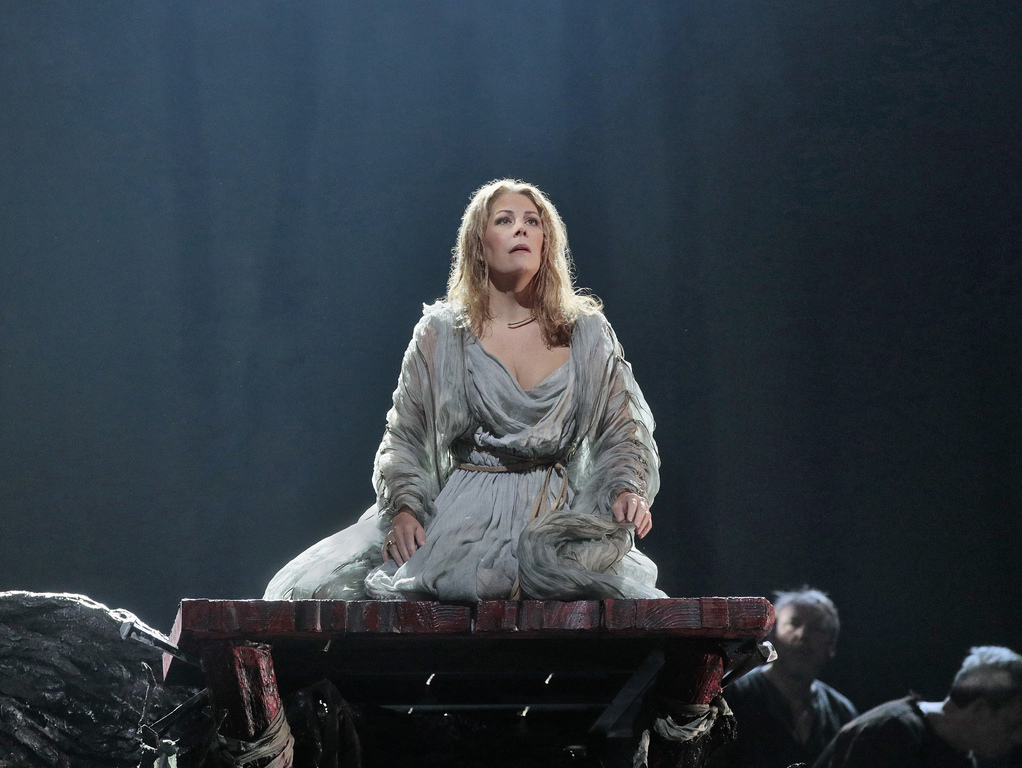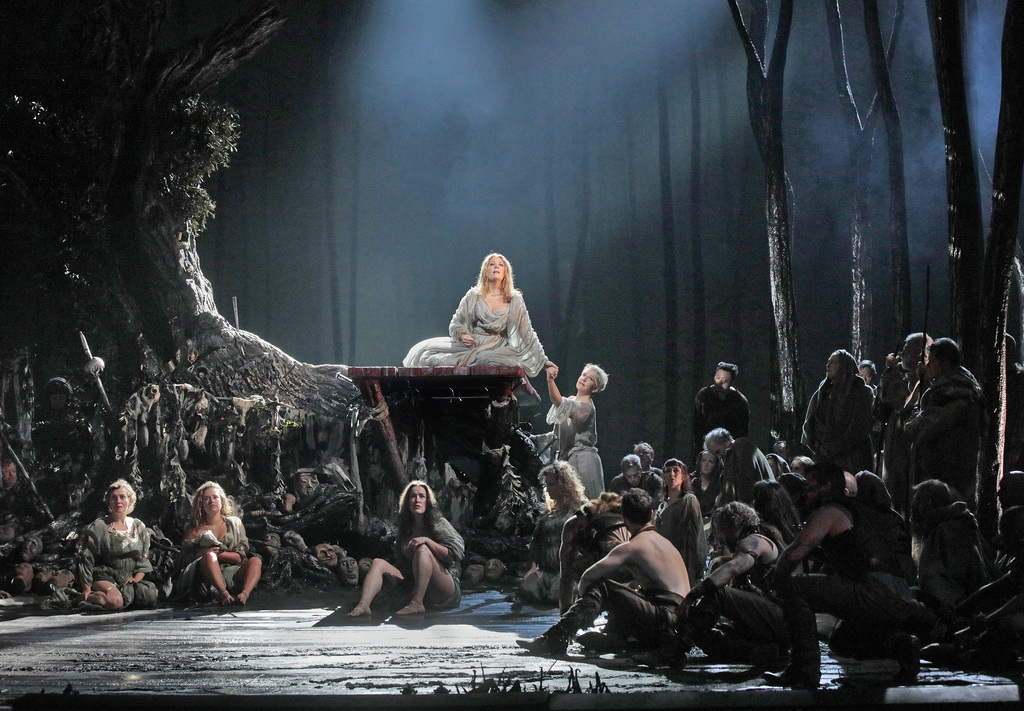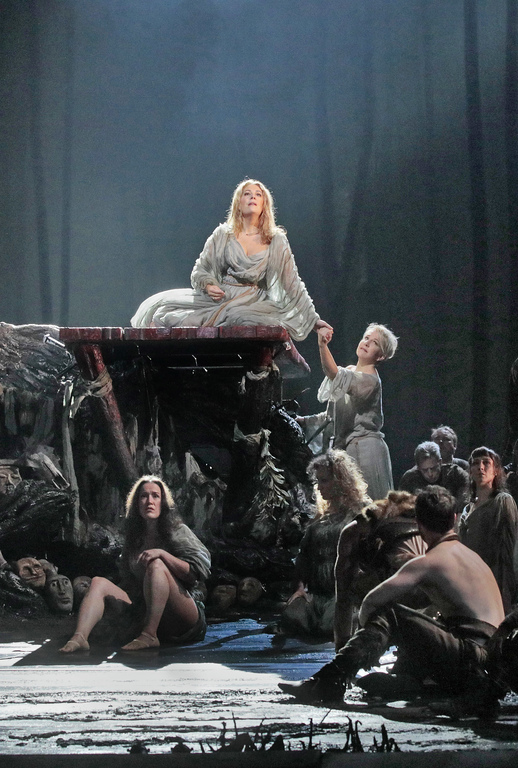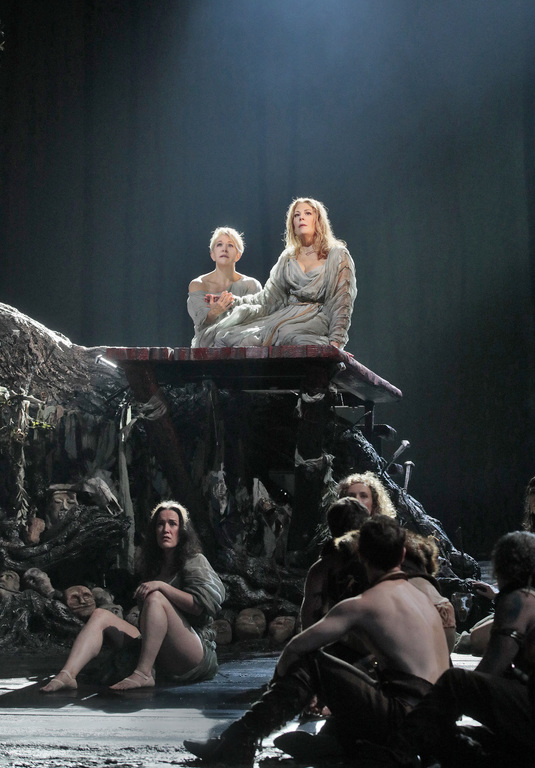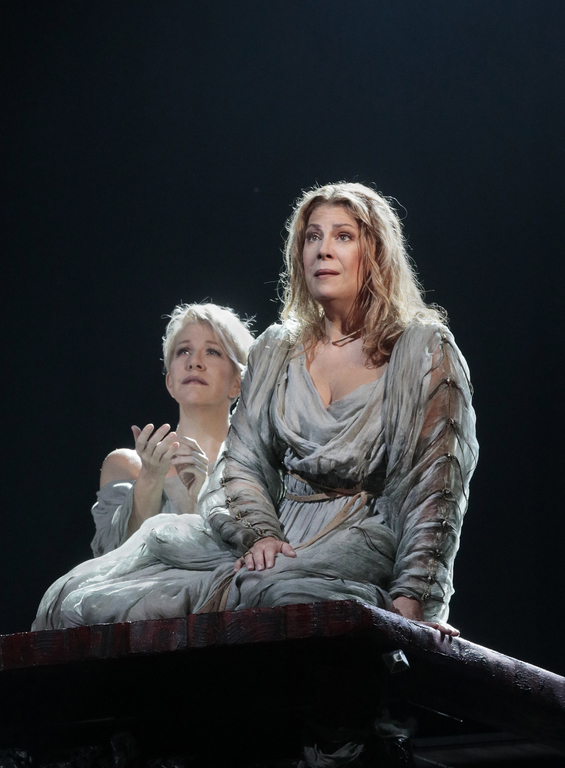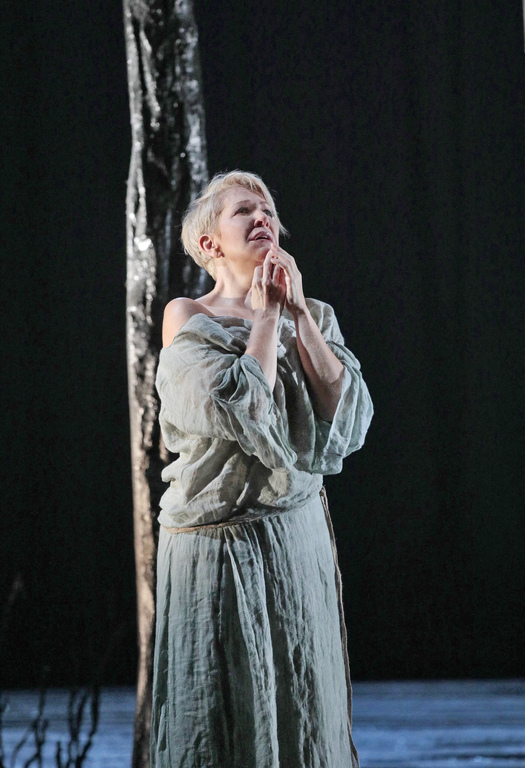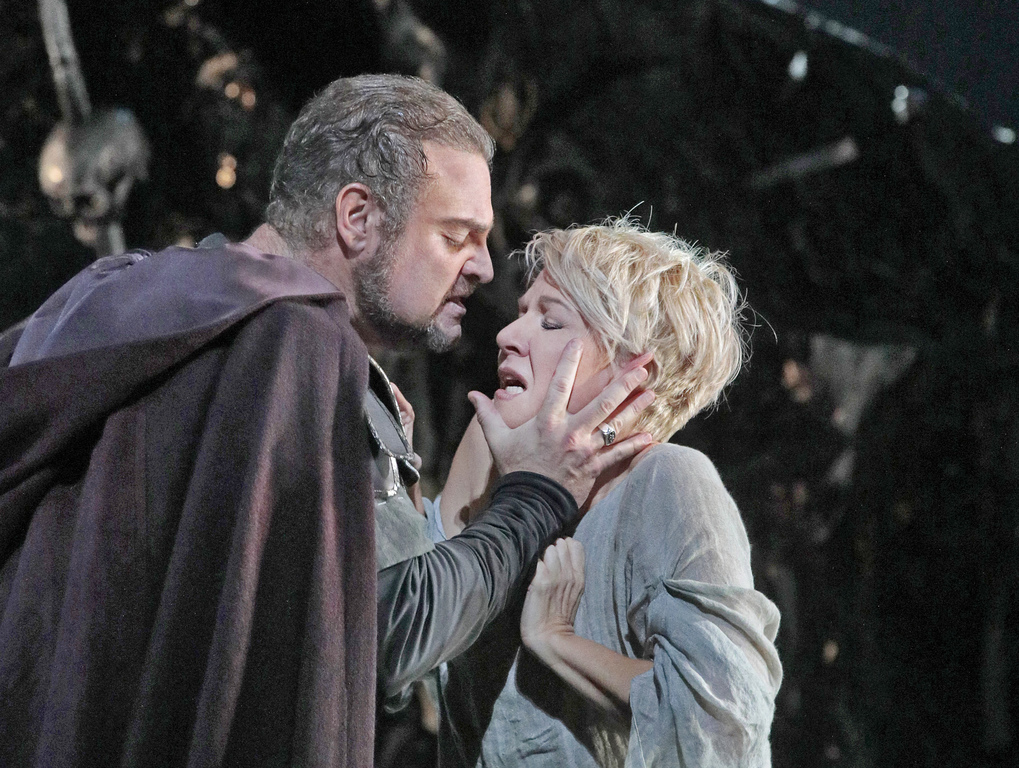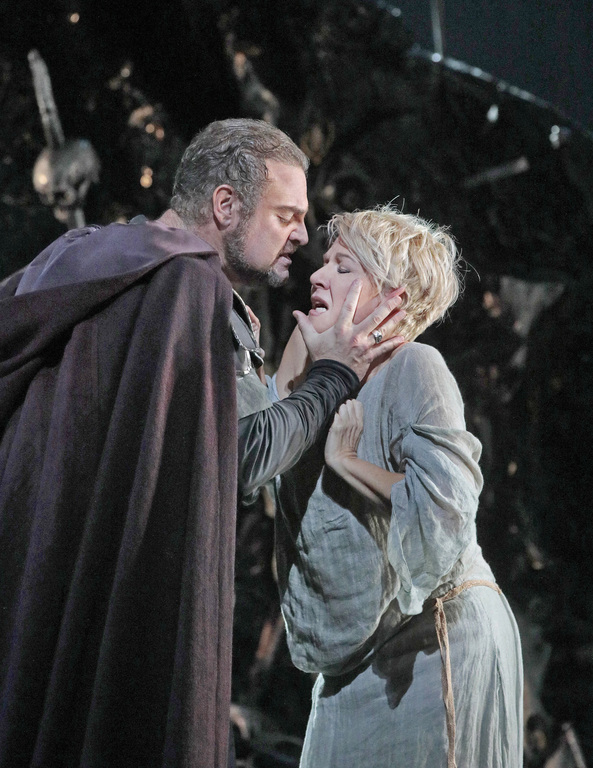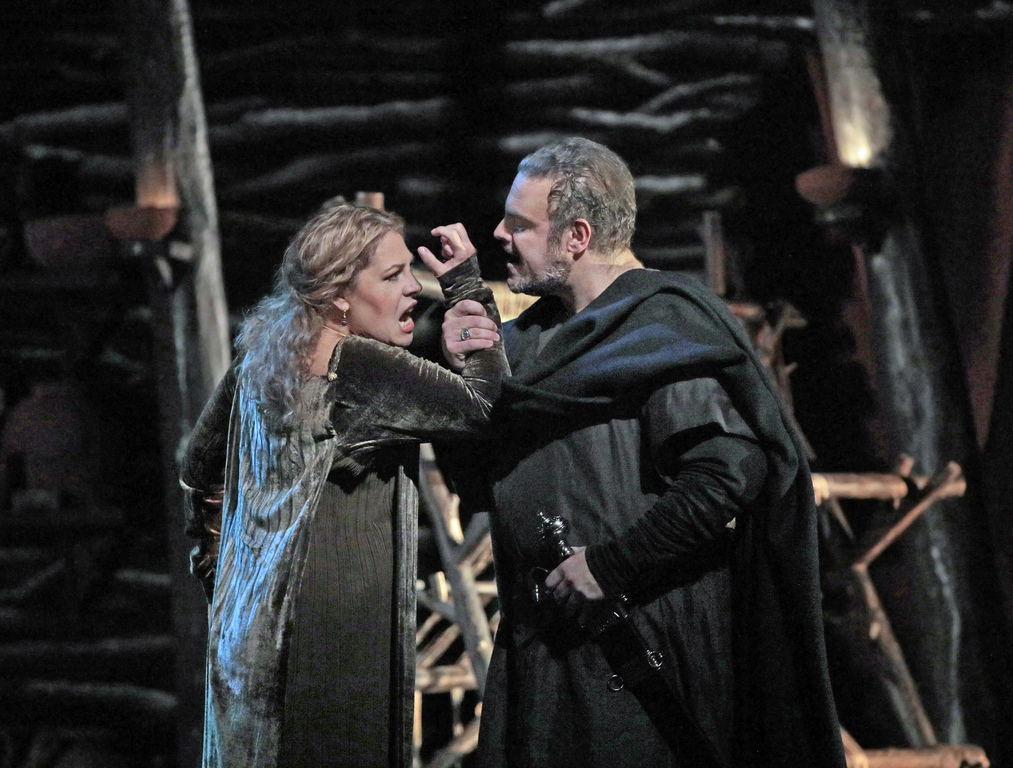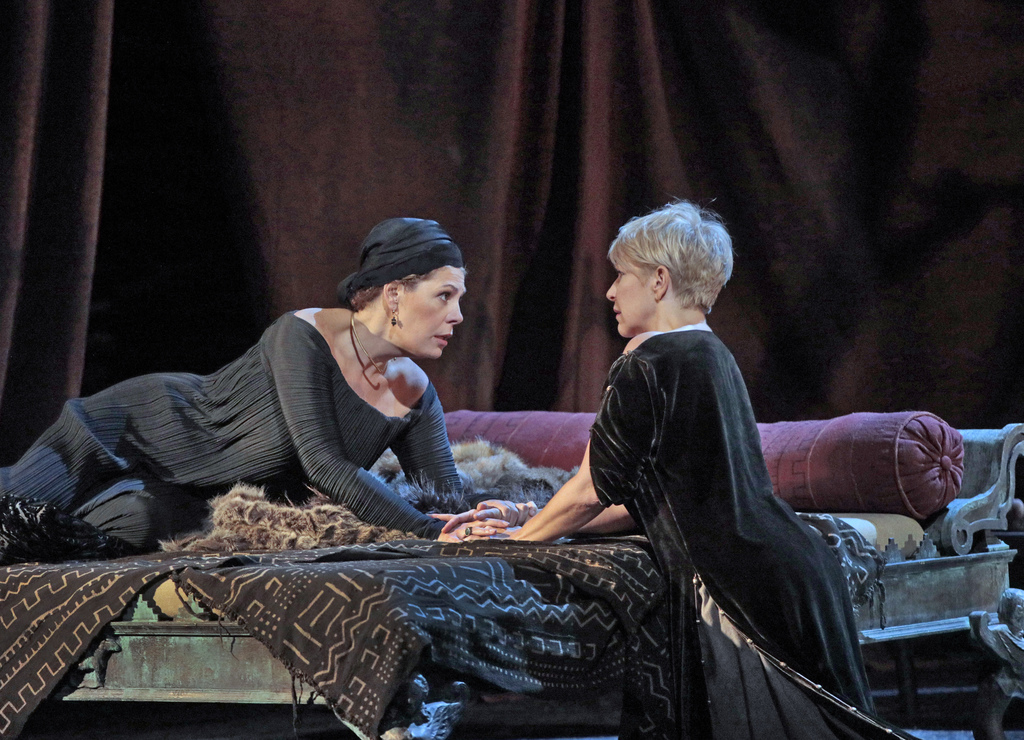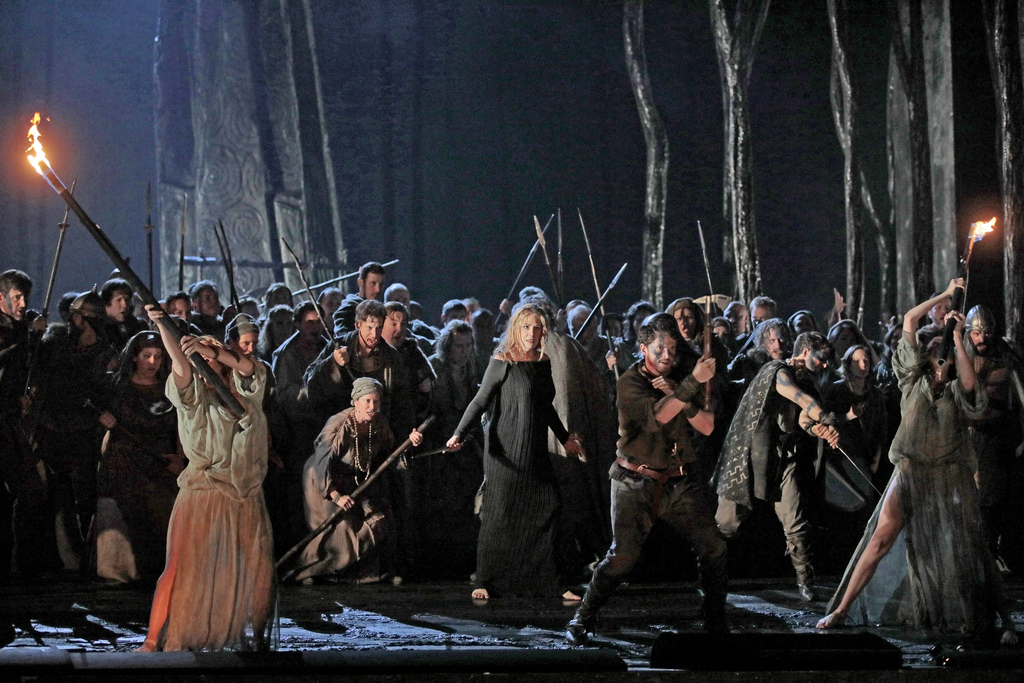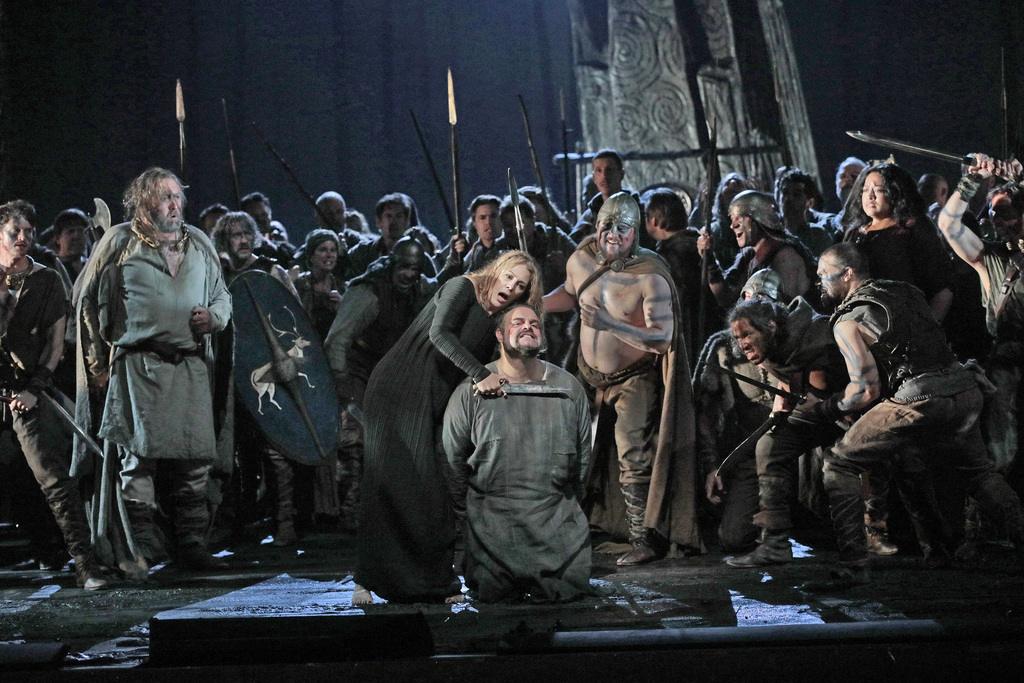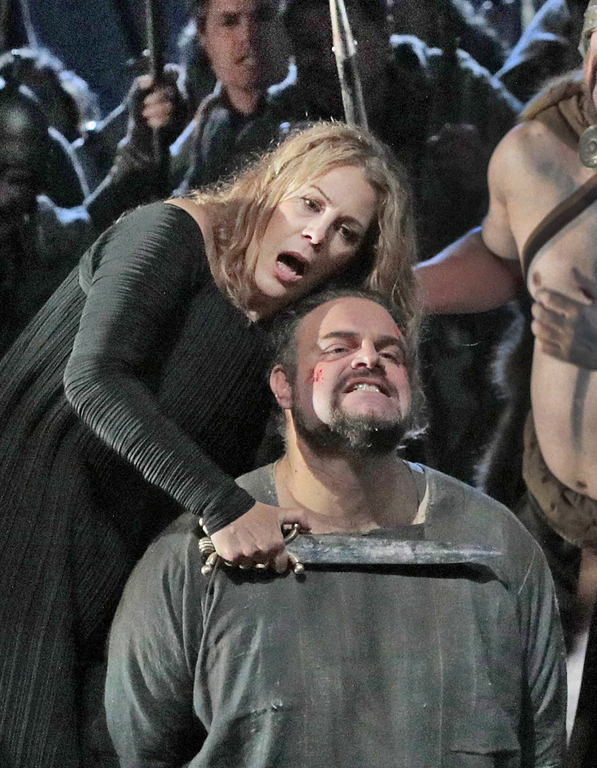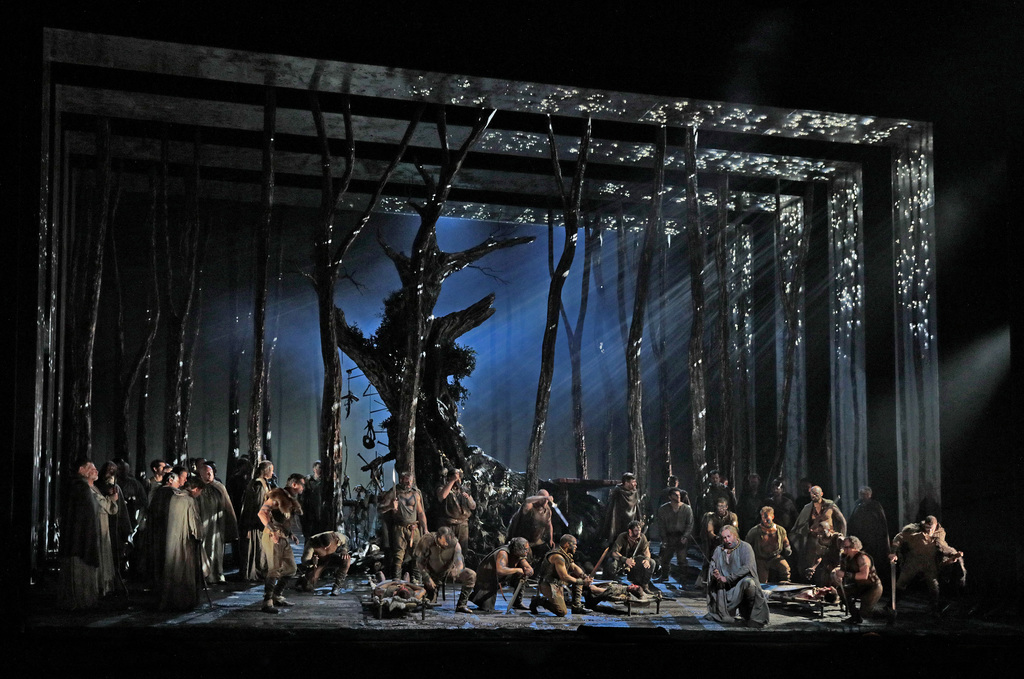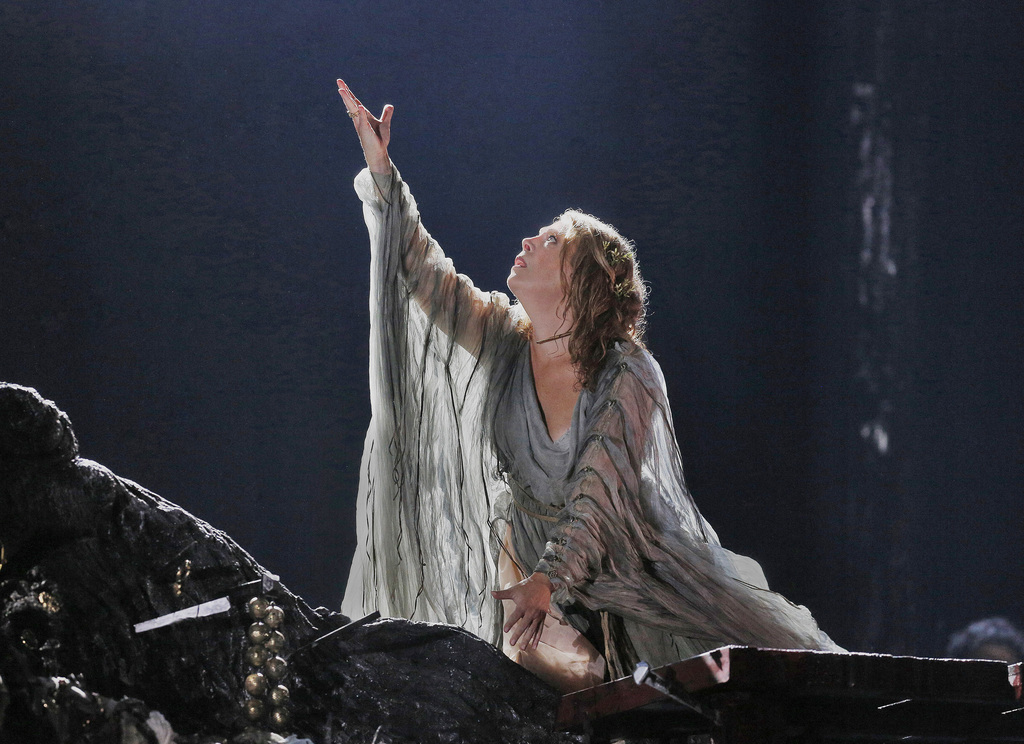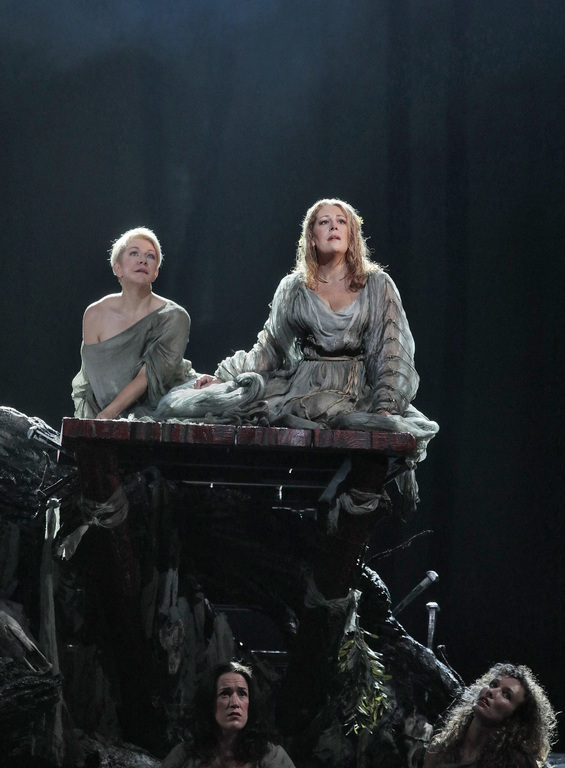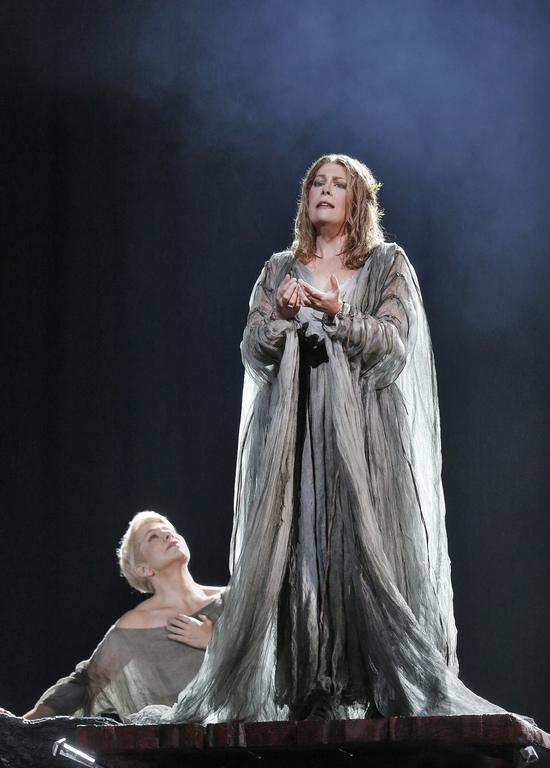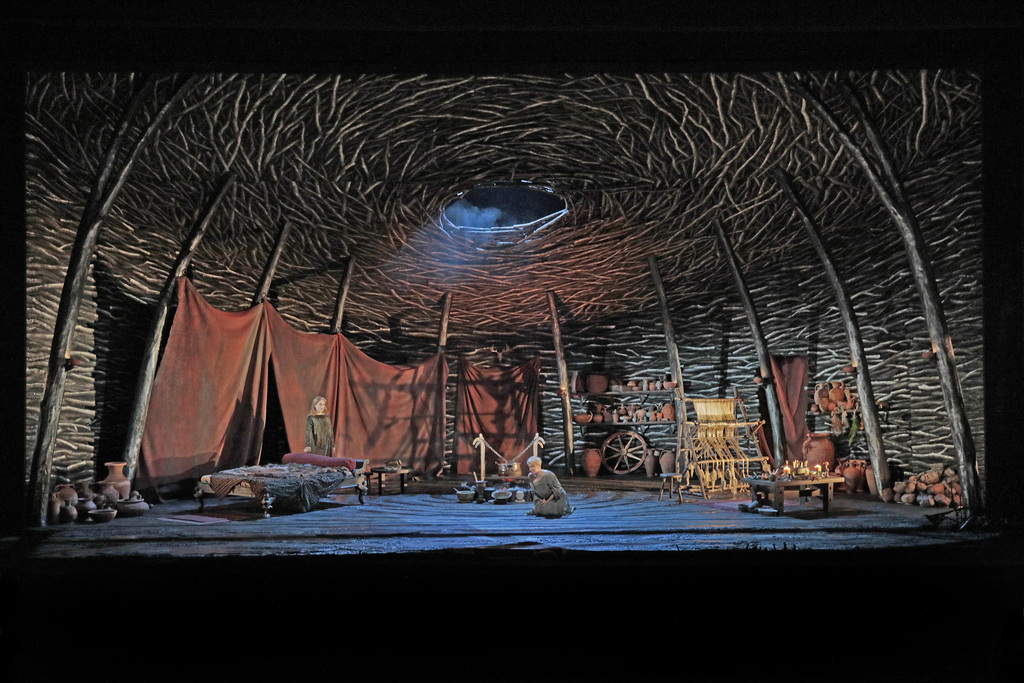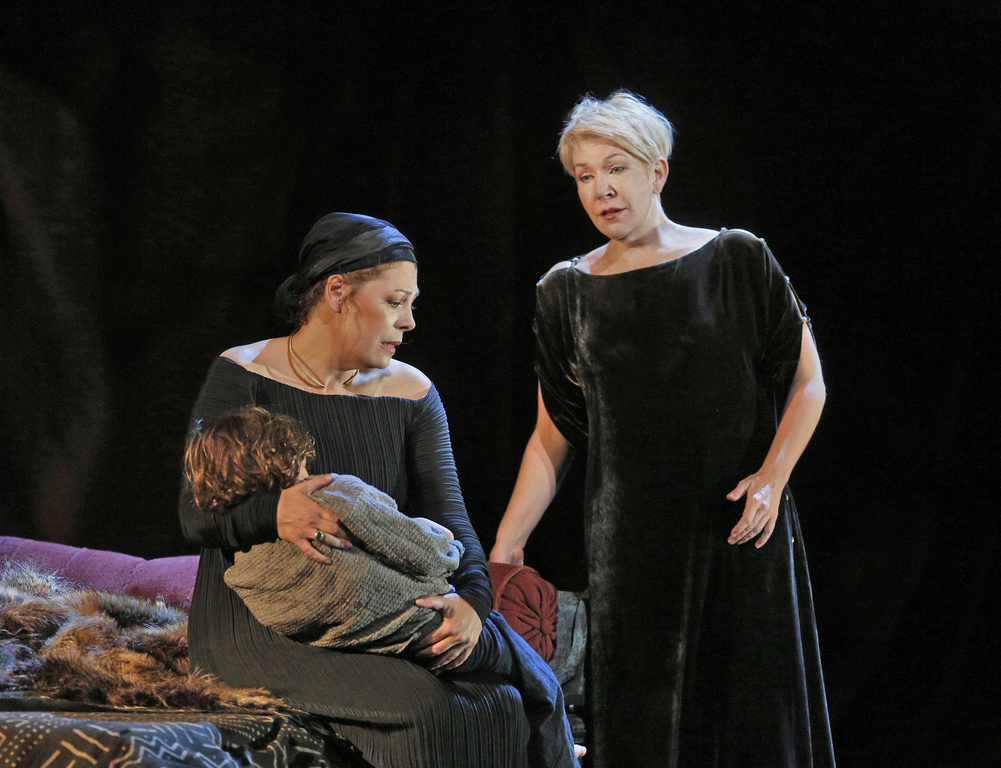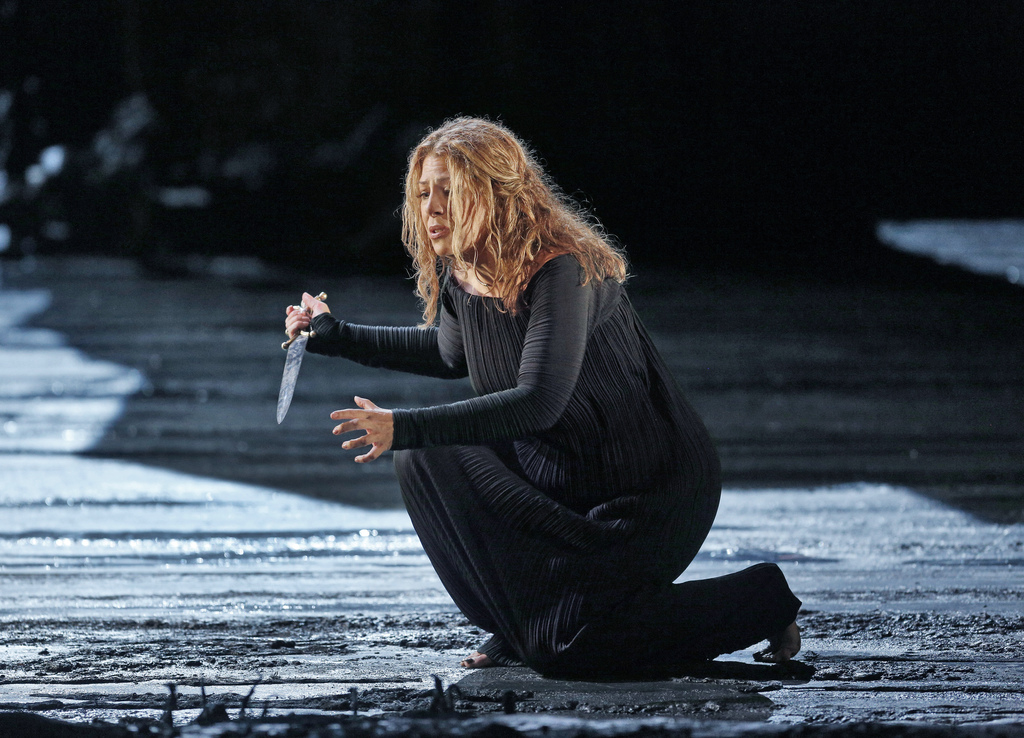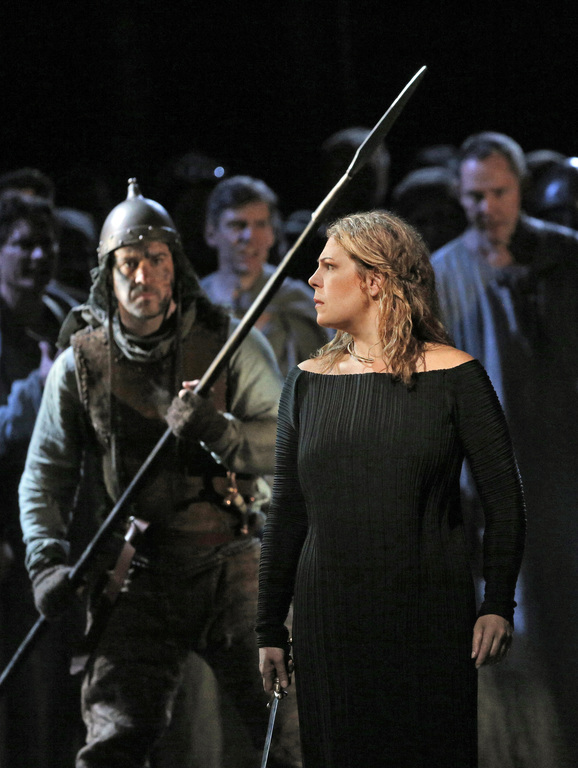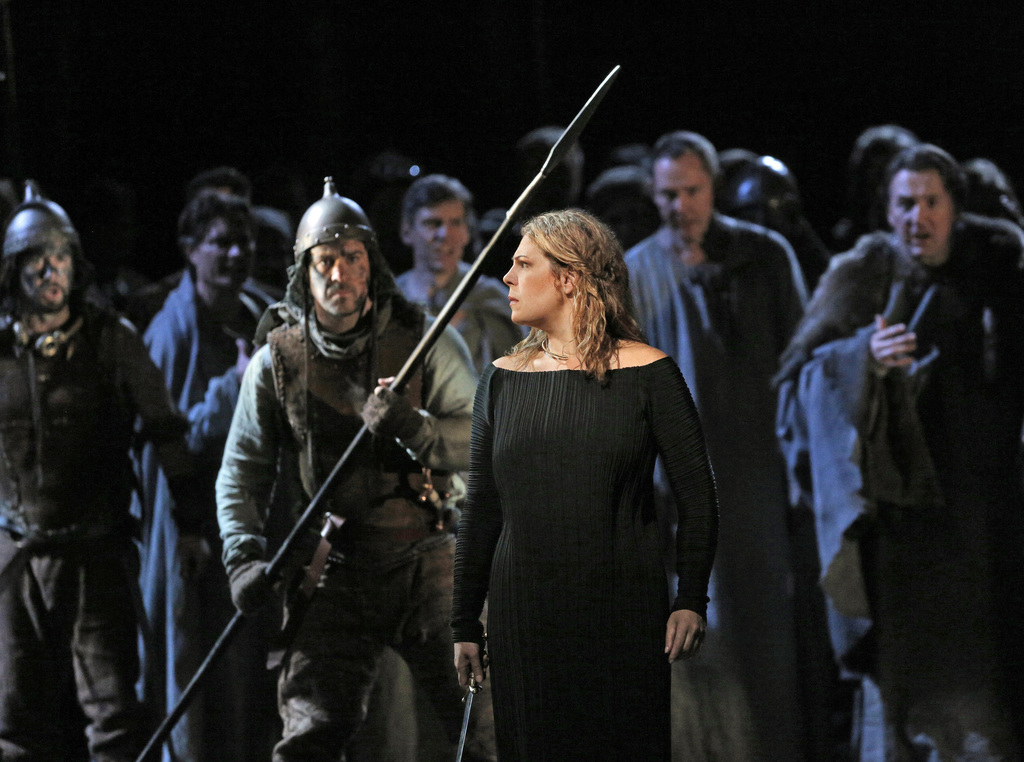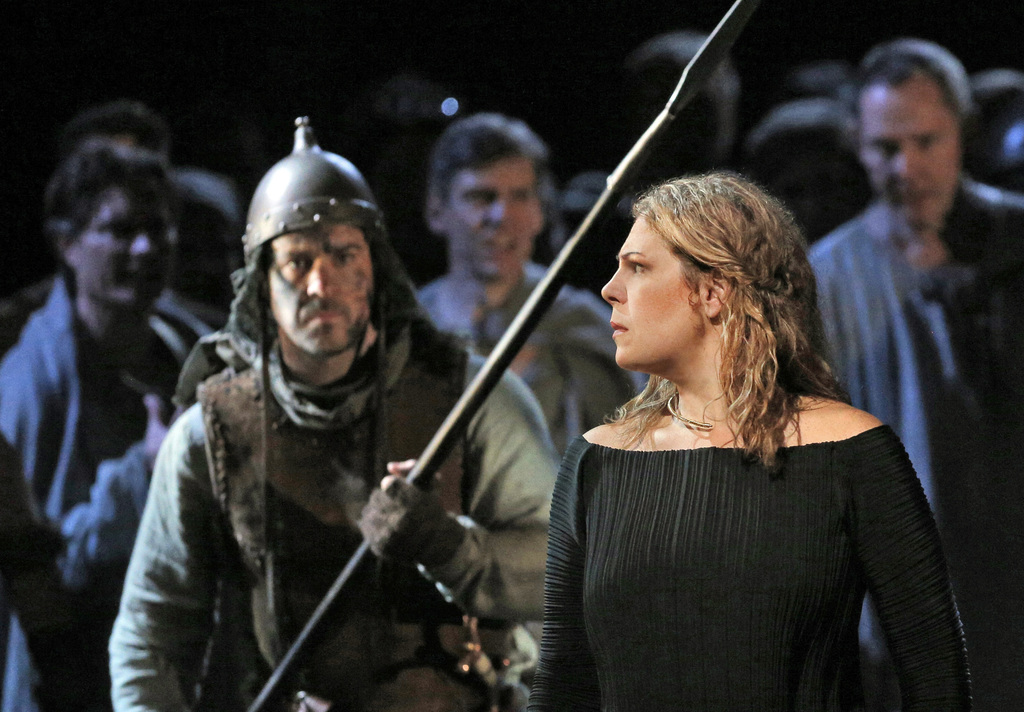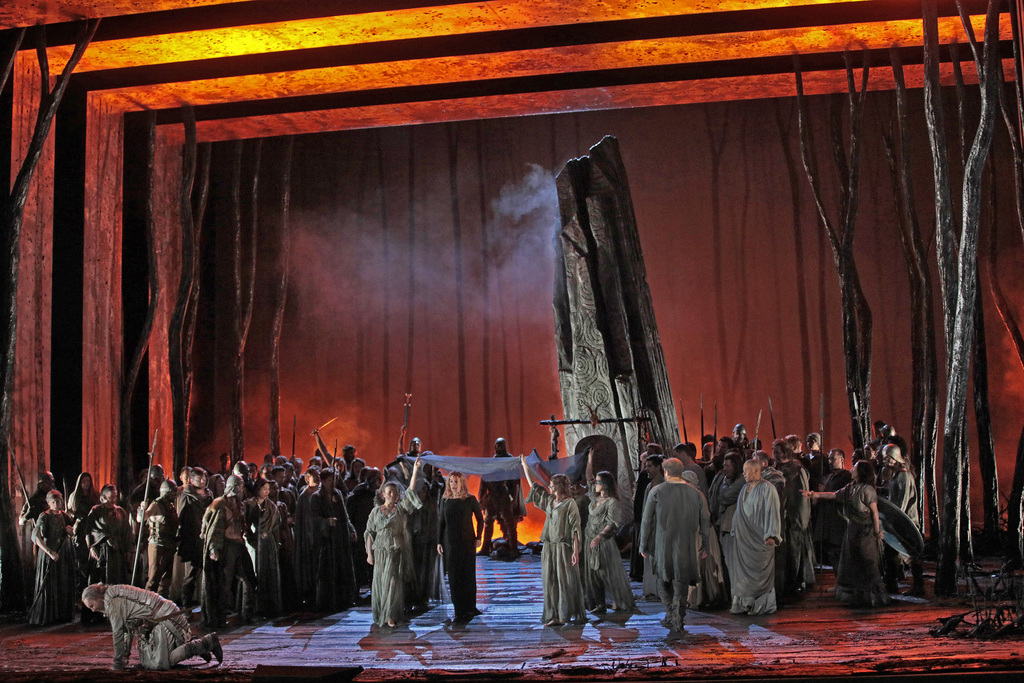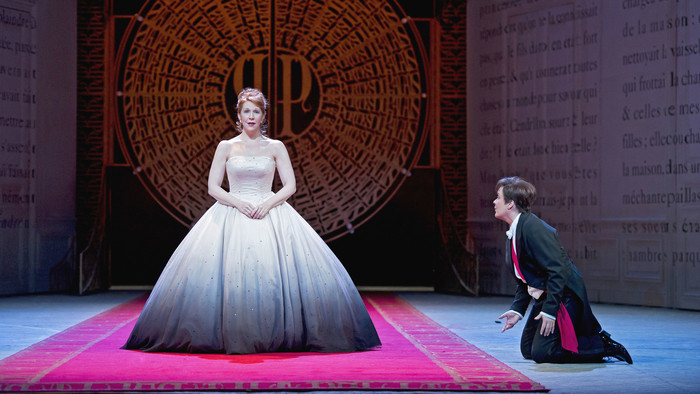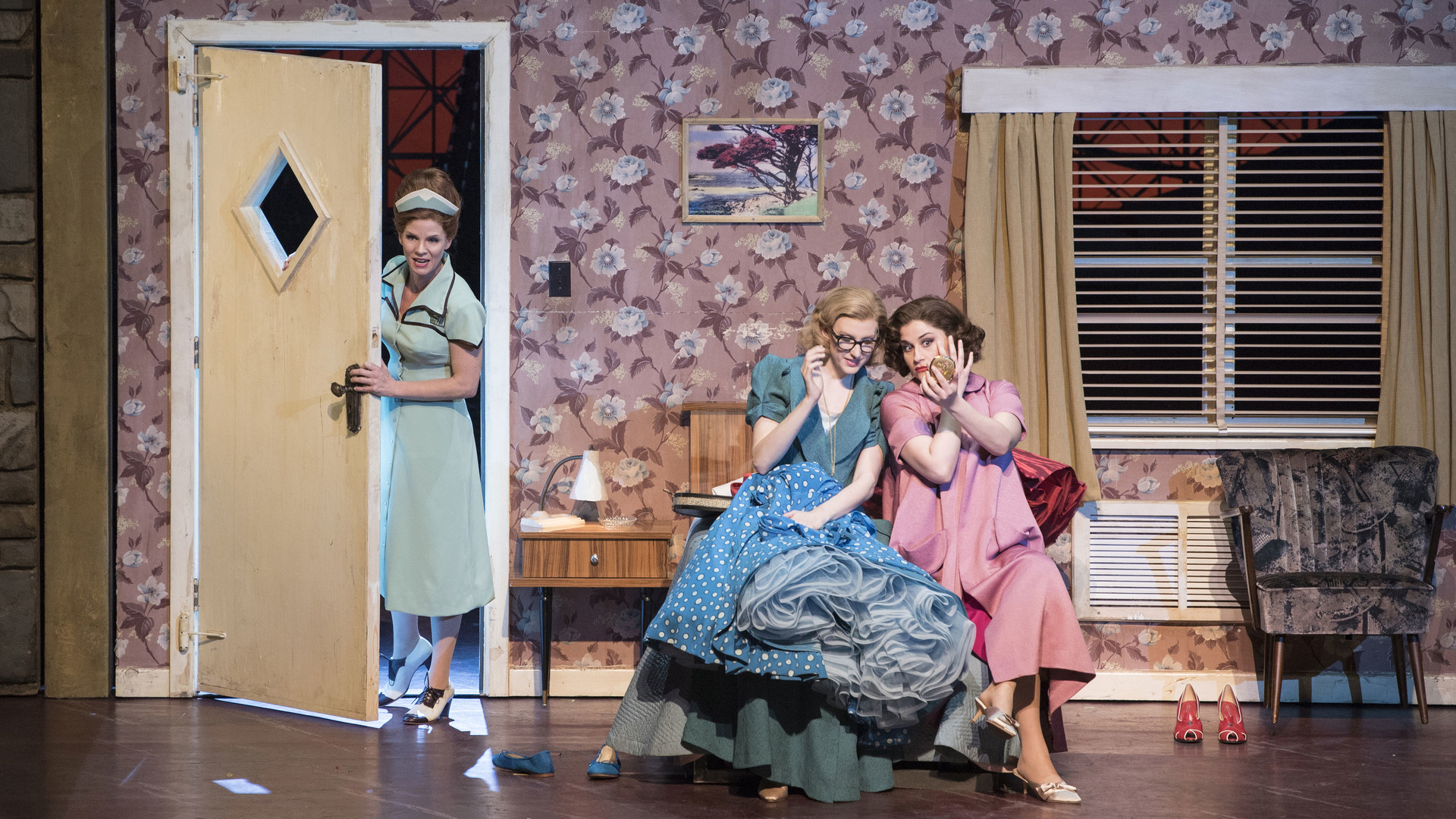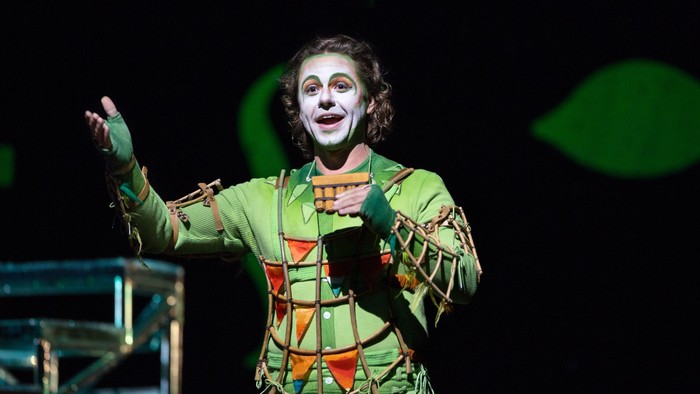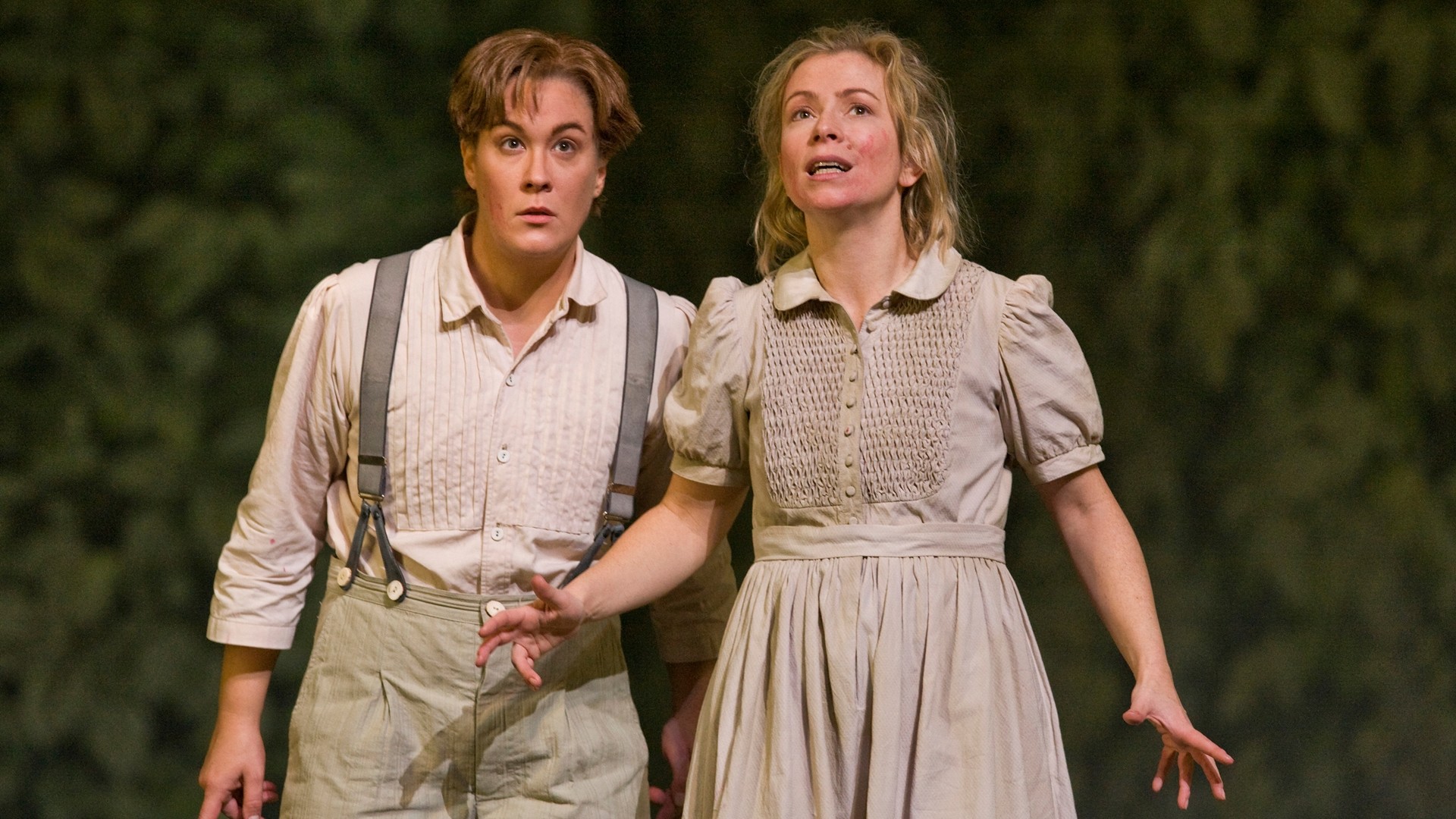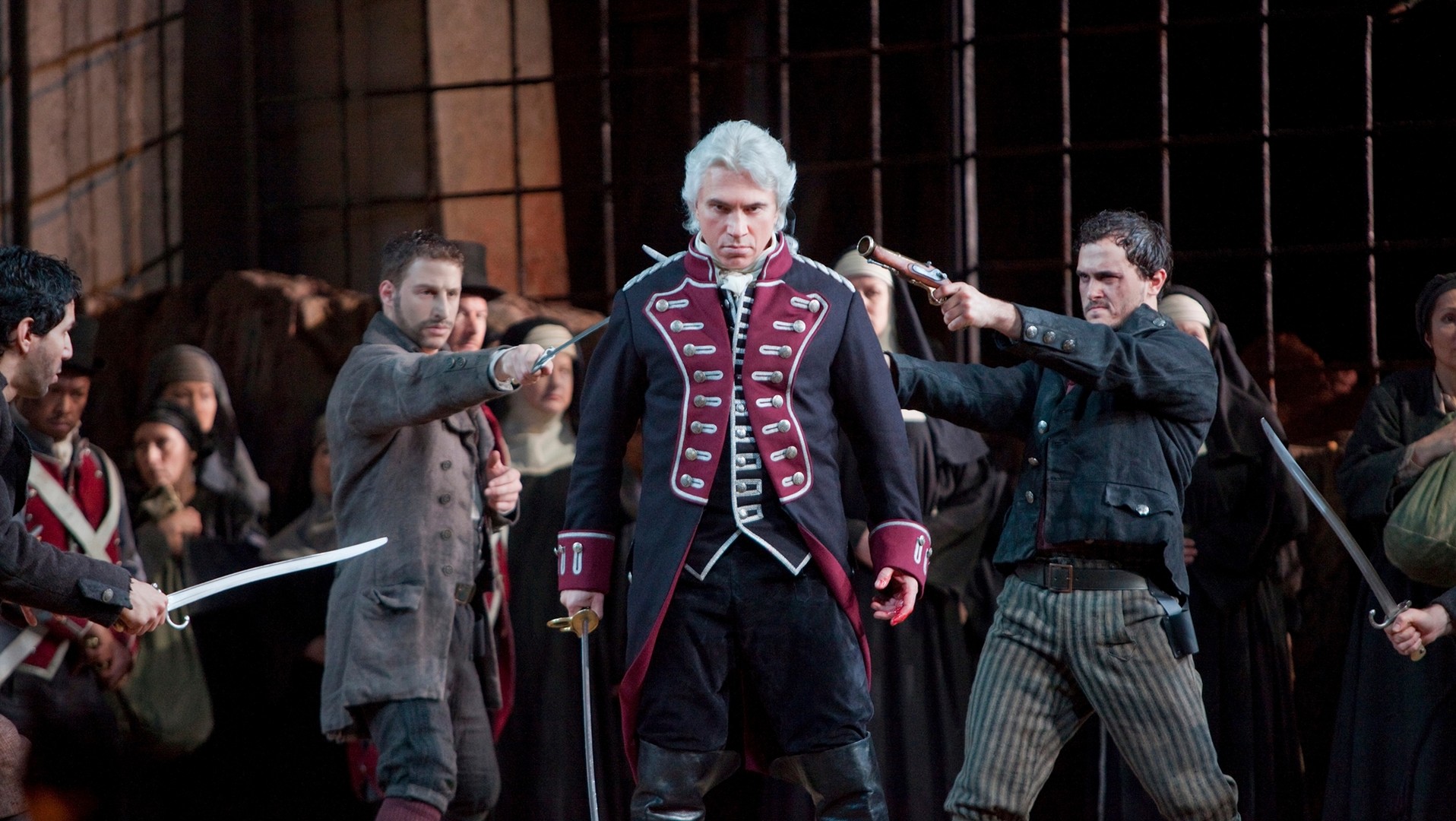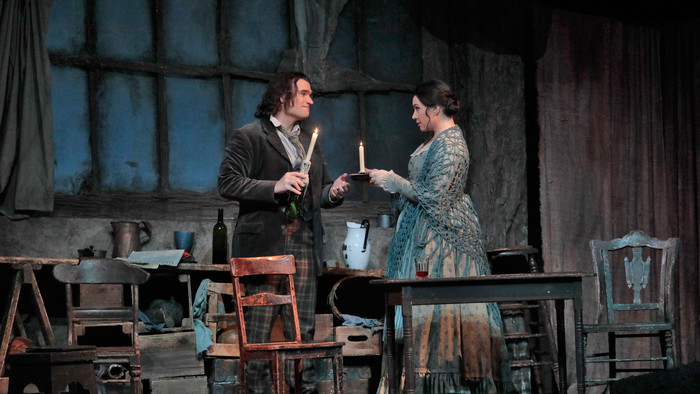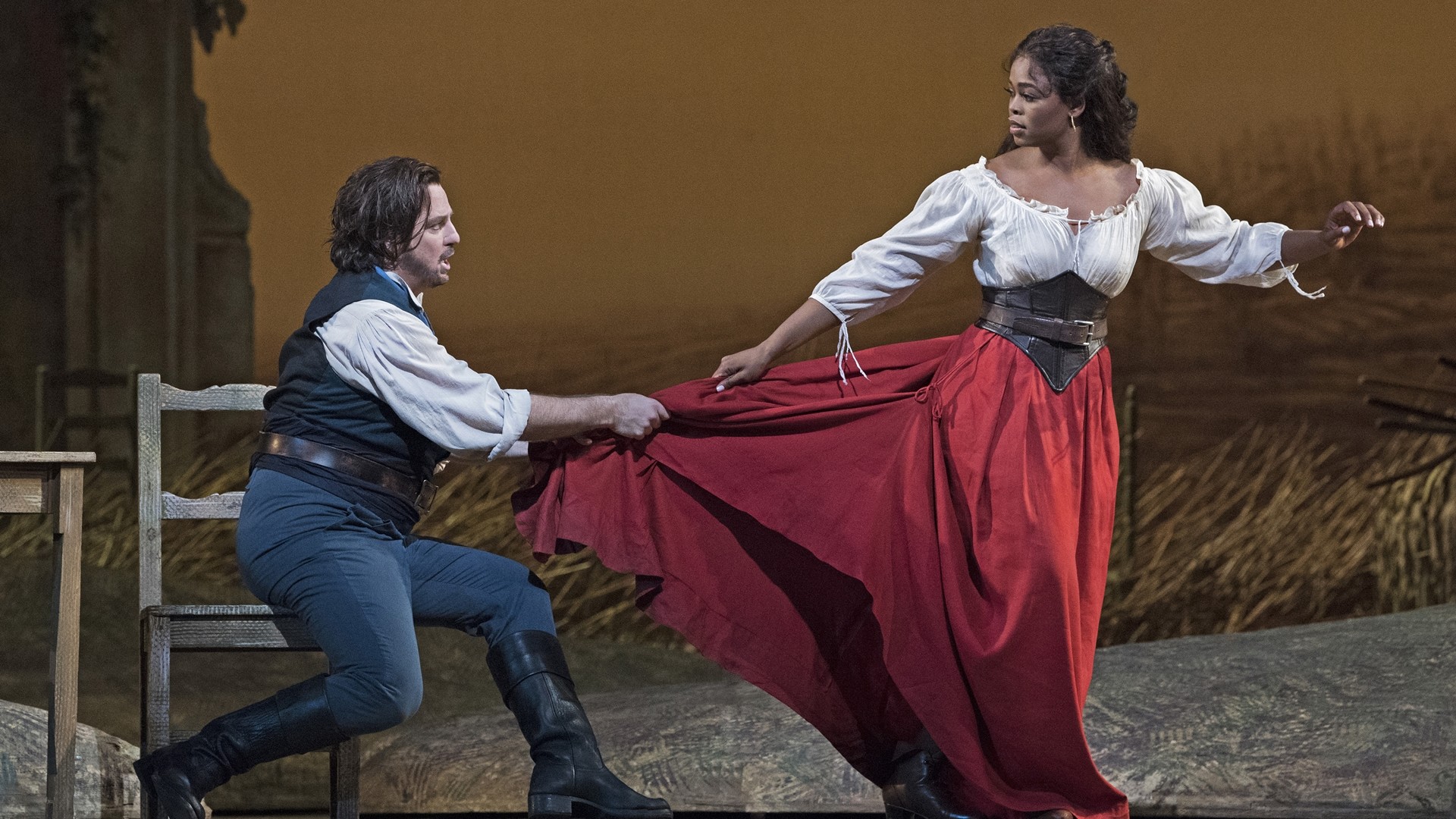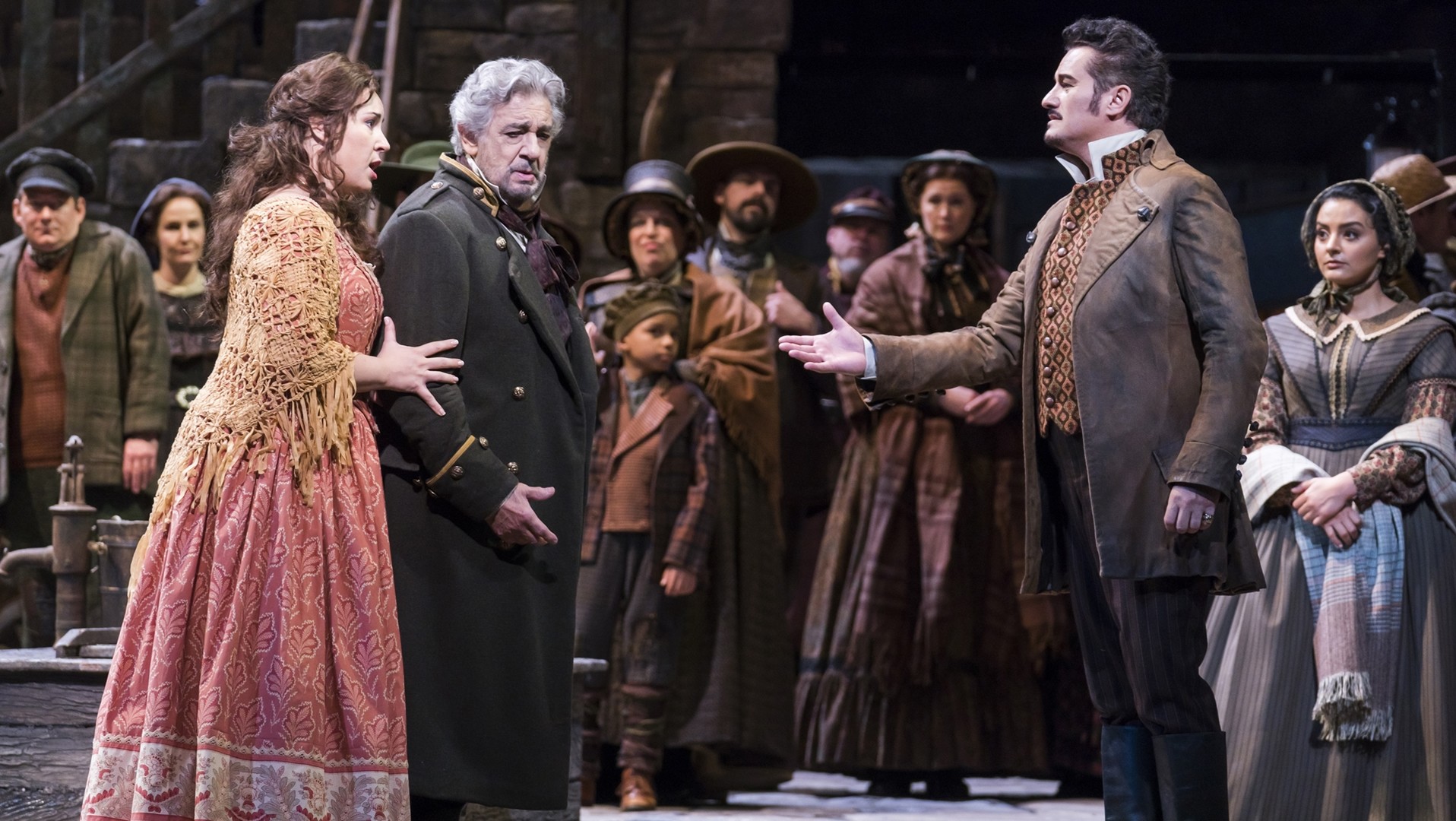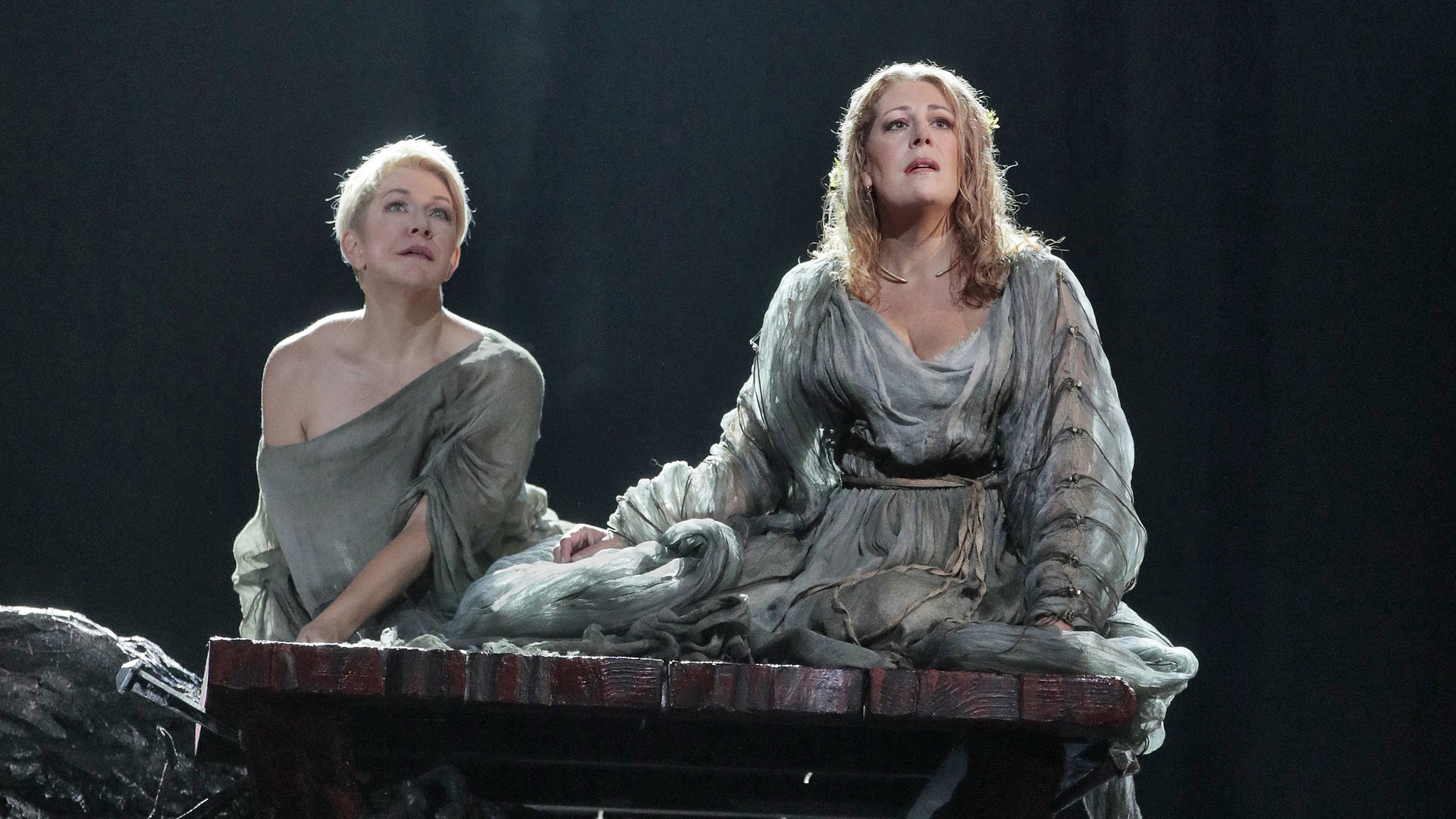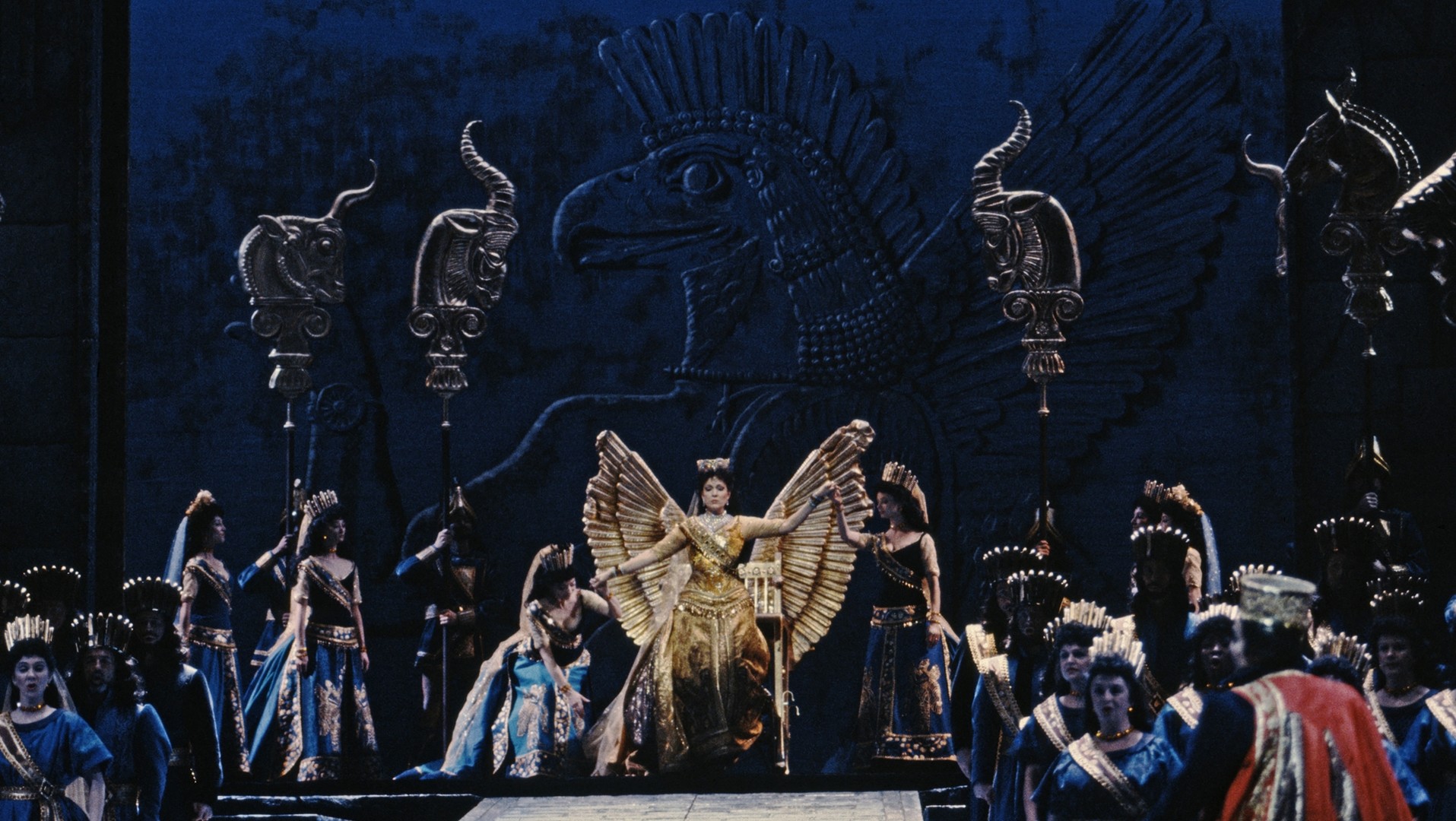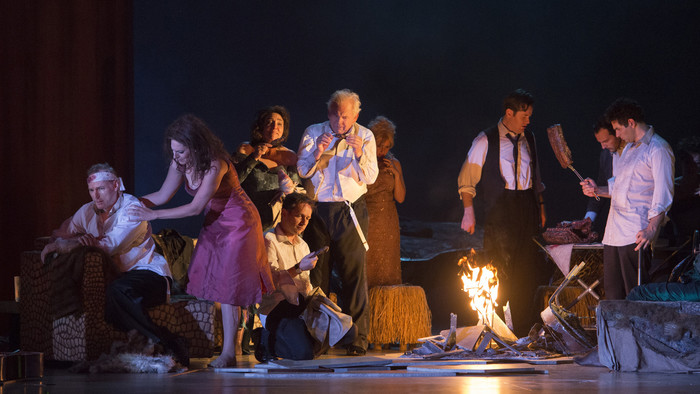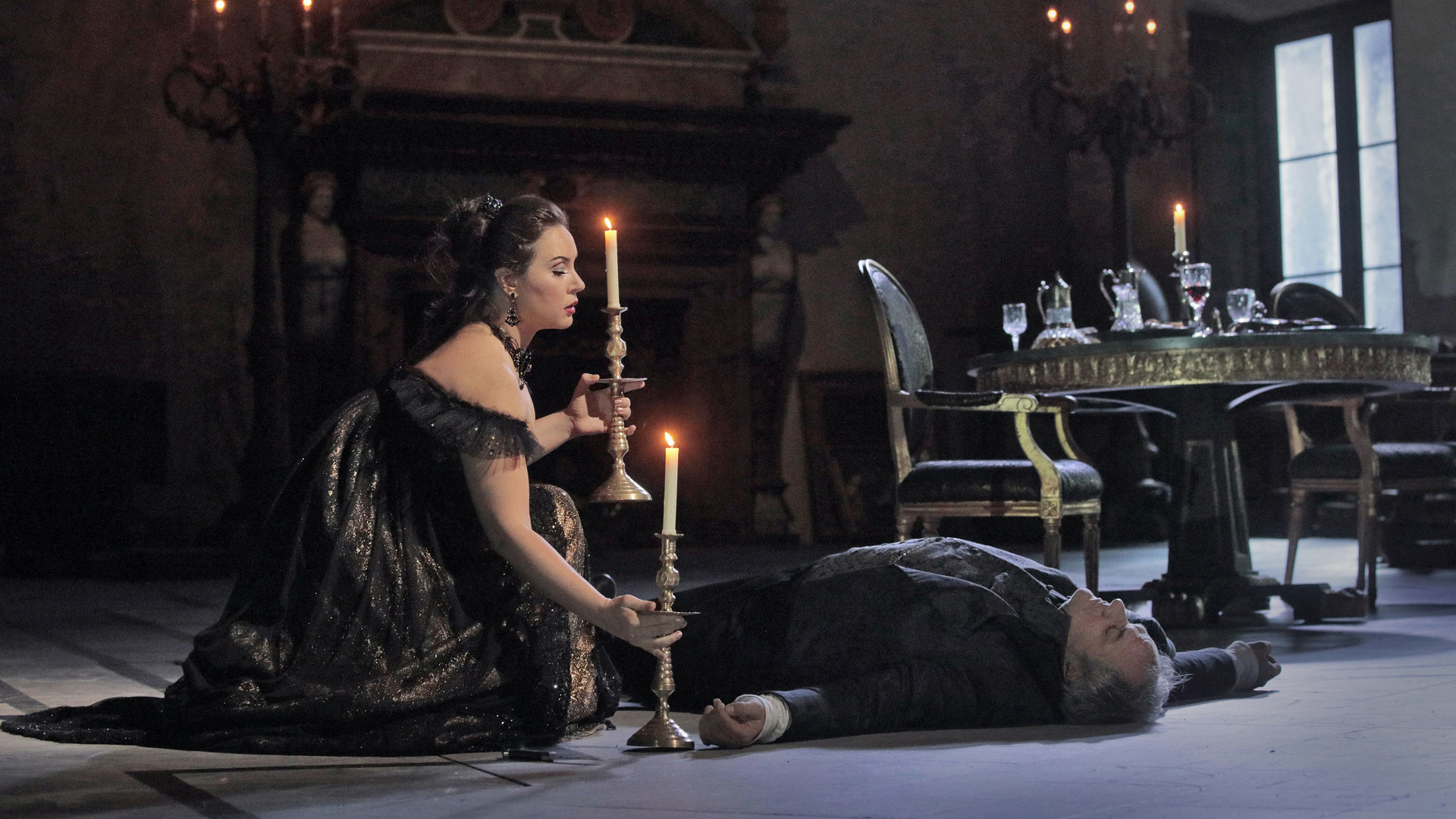ACT I
Gaul, 50 B.C.E. In a forest at night, Oroveso, King of the Sicambi, leads the druids and warriors in a prayer for revenge against the conquering Romans. After they have left, the Roman proconsul Pollione admits to his friend Flavio that he no longer loves the high priestess Norma, Oroveso’s daughter, with whom he has two children. He has fallen in love with a young novice priestess, Adalgisa, who returns his love. Flavio warns him against Norma’s anger. The druids assemble, and Norma prays to the moon goddess for peace. She tells her people that as soon as the moment for their uprising against the conquerors arrives, she herself will lead the revolt. At the same time, she realizes that she could never harm Pollione. When the grove is deserted, Adalgisa appears and asks for strength to resist Pollione. He finds her crying and urges her to flee with him to Rome. She agrees to renounce her vows.
In her dwelling, Norma tells her confidante Clotilde that Pollione has been called back to Rome. She is afraid that he will desert her and their children. Adalgisa confesses to Norma that she has a lover. Recalling the beginning of her own love affair, Norma decides to release Adalgisa from her vows and asks for the name of her lover. As Pollione appears, Adalgisa answers truthfully. Norma’s kindness turns to fury. She tells Adalgisa about her own betrayal by the Roman soldier. Pollione confesses his love for Adalgisa and asks her again to come away with him, but she refuses and declares that she would rather die than steal him from Norma.
ACT II
Norma, dagger in hand, tries to bring herself to murder her children in their sleep to protect them from living disgracefully without a father. She cannot and instead summons Adalgisabegging her to marry Pollione and take the children to Rome. Adalgisa refuses: She will go to Pollione but only to persuade him to return to Norma. Overcome by emotion, Norma embraces her, and the women reaffirm their friendship.
The warriors assemble in the forest to hear Oroveso’s announcement that a new commander will replace Pollione. Oroveso rages against the Roman oppression, but tells them that they must be patient to ensure the success of the eventual revolt.
Norma is stunned to hear from Clotilde that Adalgisa’s pleas have not persuaded Pollione to return to her, and, in a rage, she urges her people to attack the conquerors. Oroveso demands a sacrificial victim. Just then, Pollione is brought in, having profaned the druids’ sanctuary. Alone with him, Norma promises him his freedom if he will give up Adalgisa for her. When he refuses, Norma threatens to kill both their children and Adalgisa to punish him. But when she calls in the druids and tells them that a guilty priestess must die, she confesses that she is referring to herself. Moved by her nobility, Pollione asks to share her fate. Norma begs Oroveso to watch over her children, then leads her lover to the pyre.

